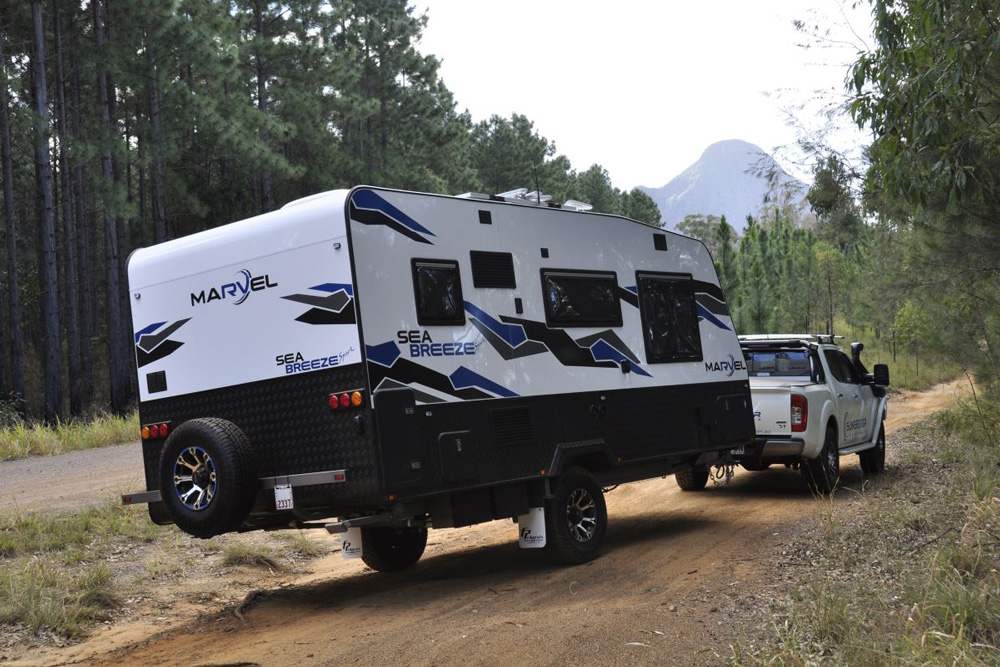
Road Trip Safety Essentials
Unsafe loads are a danger to everyone on the road—and so are unsafe drivers! If you don’t care about your road safety, think about your loved ones, friends, and other road users by ensuring that you, your towing vehicle, trailer, and road trip essentials are up to the task.
Vehicle Registration
It may seem obvious, but it's amazing how many Australian travellers hit the roads without ensuring their vehicle registration, including the trailer, is current. At best, you may find yourself facing a large fine and demerit points on your driving license. In the worst possible scenario, you may find yourself uninsured after an accident - worse still if there are serious injuries involved.
Ensuring your towing vehicle is suitably serviced, maintained, and conforms to National and State safety standards is vital. Towing increases the demand for power, suspension, braking, tires, and handling in many ways.
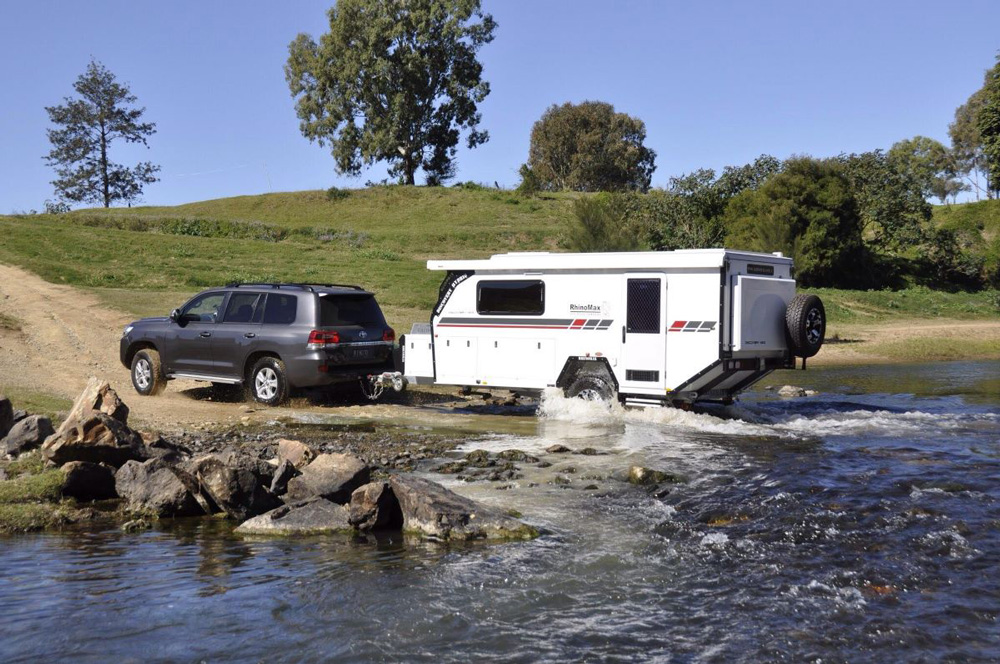
Weights and Measures
Check whether your vehicle's rated towing capacity is suitable for the intended load, and also check the tow bar, tongue, hitch, and coupling rating as they may differ from the vehicle's. It isn’t always advisable to merely go by a manufacturer’s specification sheet as mass can vary considerably. If in doubt, take the package to a certified weighbridge, allowing full fuel/ water tanks, holding tanks, accessories, fittings, food and drinks, clothes, recovery gear, sports and holiday equipment, with specific attention to the braking requirements to maximise road safety.
Rules Regarding Towing
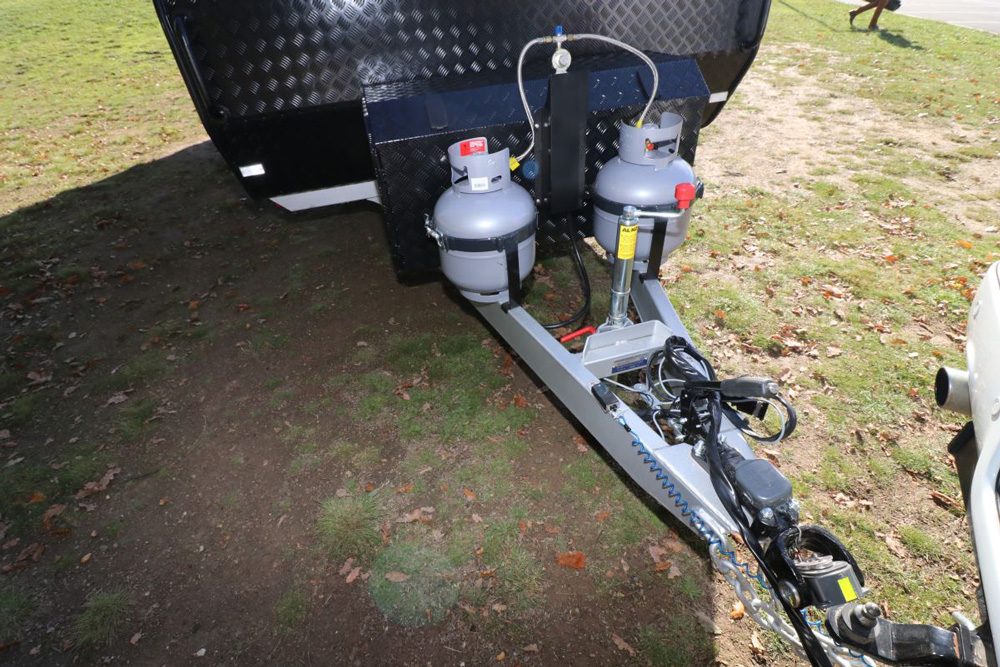
If the vehicle was manufactured before 1 January 1992 and the manufacturer hasn’t specified a maximum towing capacity, use these towing capacities as a guide:
-
1.5 times the unloaded mass of the vehicle—if the trailer is fitted with appropriate brakes
-
a maximum of 750kg—if the trailer isn’t fitted with brakes.
From the official standards:
“15.2 All other trailers that do not exceed 4.5 tonnes ATM
These trailers must be fitted with an efficient brake system that complies with ADR 38/-. Except for over-run brakes, all brakes must be operable from the driver's seat of the towing vehicle. For trailers up 2 tonnes GTM, an efficient braking system is considered to have brakes operating on the wheels of at least one axle. Over-run brakes may only be used on trailers that do not exceed 2 tonnes GTM. Every trailer over 2 tonnes GTM must have brakes operating on all wheels. The brake system must cause immediate application of the trailer brakes in the event of the trailer becoming detached from the towing vehicle. Under these circumstances, the brakes must remain applied for at least 15 minutes.”
See here for full standards: Building Small Trailers, National Code of Practice: information for manufacturers and importers.
Note that GTM, or Gross Trailer Mass, means the mass carried by the trailer’s axles when coupled to a towing vehicle and carrying its maximum load approximately uniformly distributed over its load space.
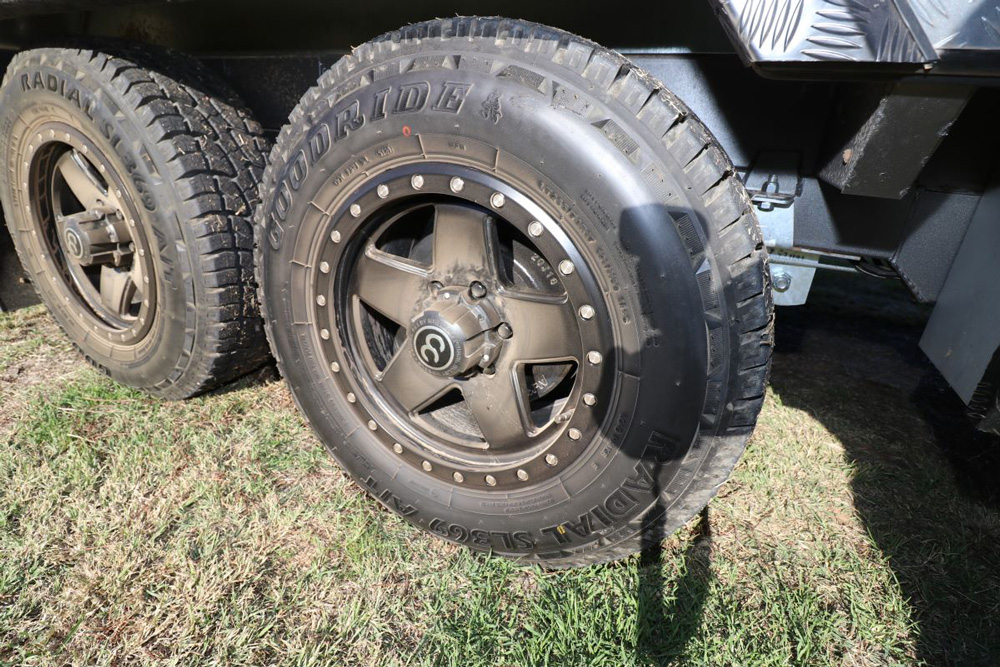
Wheels and Tyres
Before towing it is imperative to check your tyre pressures and general condition. Increasing the tyre pressure to the maximum for long runs on the bitumen can provide a more stable ride, but they should be inspected when they are hot as the pressure will increase with the friction and heat transfer.
For long runs on corrugated, rocky or sandy off-road conditions, you may need to reduce your tyre pressures to increase grip and minimize blowouts, plus slow down considerably to maintain safe control. Refer to your tyre manufacturer's specifications for appropriate pressures. A small portable compressor and tyre deflation kit should be standard equipment for all travellers.
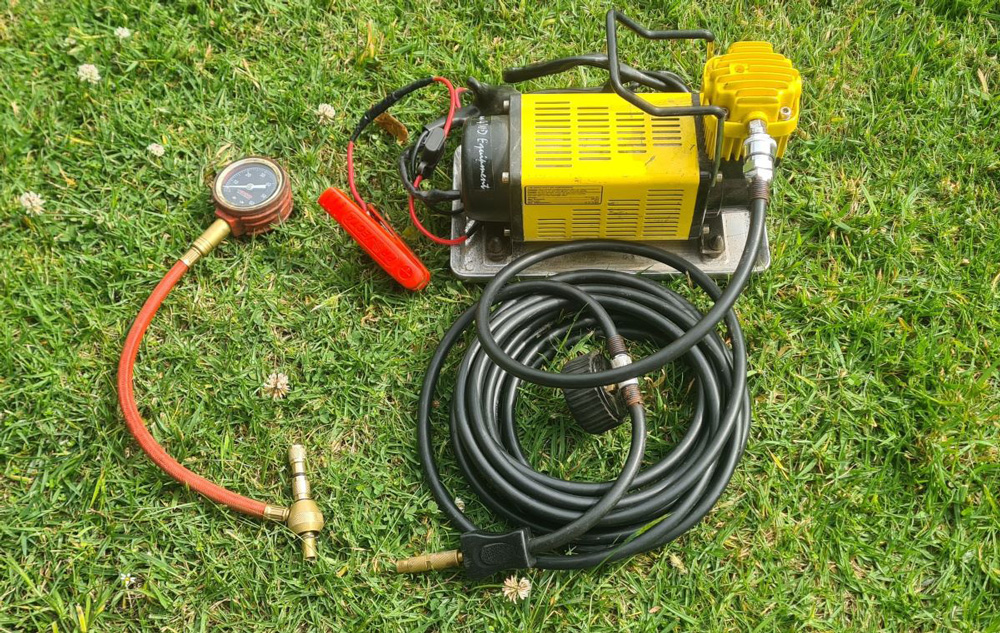
Steady the Load
Ensure your tow coupling height provides an even load across all the tyres. Tow coupling weight is a crucial factor to safe towing. A rule of thumb ball weight of around 8-10% of the trailer mass is commonly accepted. A trailer without enough tow ball weight will sway uncontrollably. In contrast, a trailer with excessive ball weight will reduce braking, suspension, steering and handling capabilities, and stress both the towing vehicle and trailer chassis. You can often pack your load to adjust the ball weight but take care to secure it appropriately. Moving loads are hazardous especially under heavy braking and on winding roads.
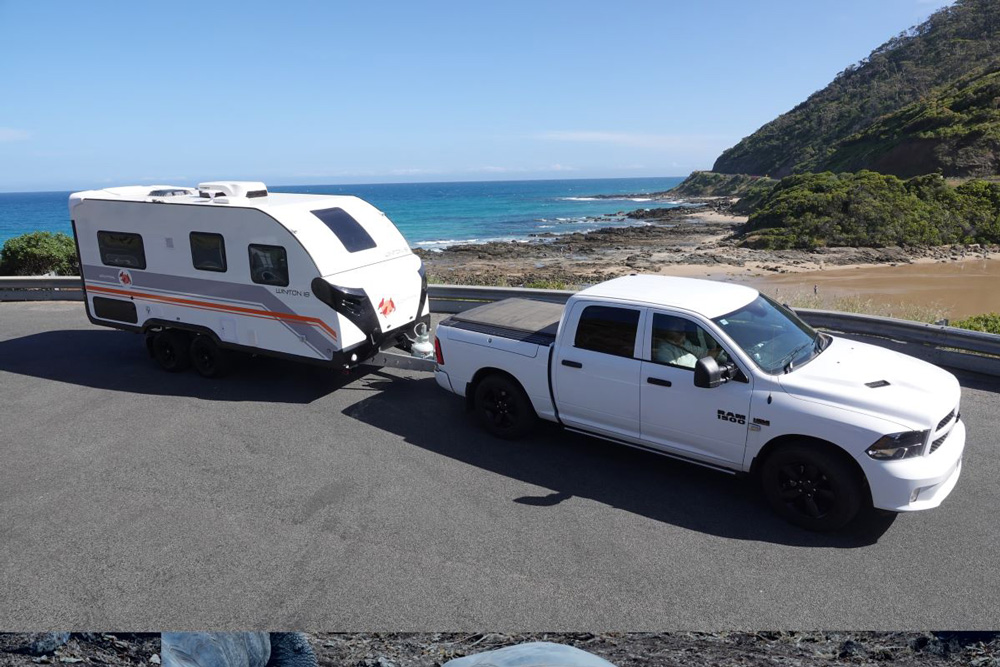
Always ensure that your load is well secured. This may include dropping canopies and awnings, locking windows, doors, and hatches, securing towing covers and tonneaus, adjusting safety chains, fitting properly rated tie downs, tightening ropes with strong knots, dropping antennae and, in some cases, fitting warning signs and flags.
Turning your headlights on is highly recommended when towing both night and day, but be aware that the added load on your tow bar may alter the angle of the headlights in the face of oncoming drivers - yet another reason to maintain even loading.
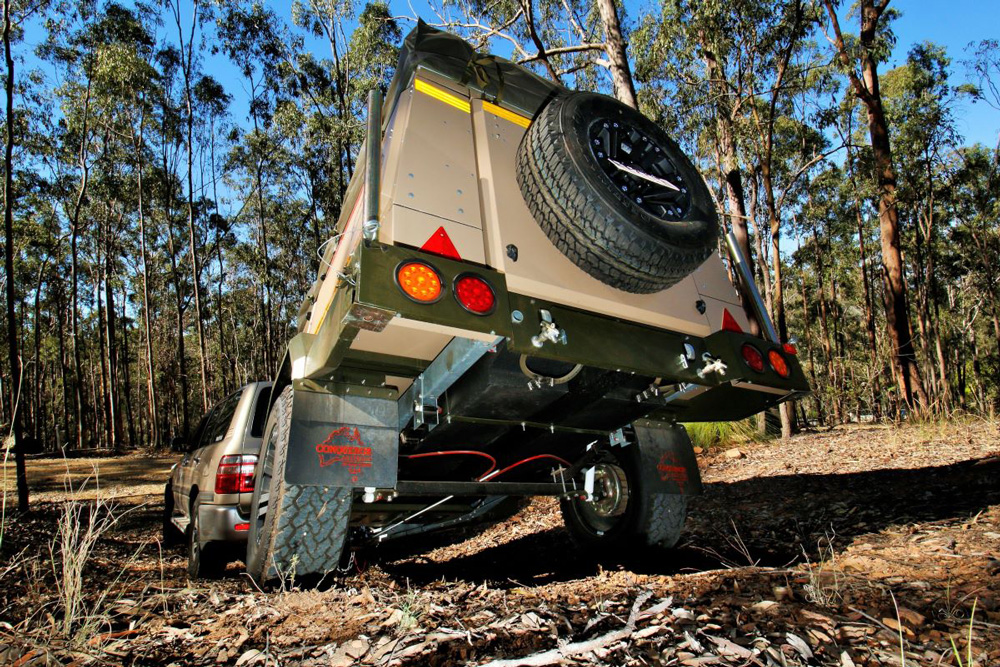
Plan Your Trip
GPS and the internet have made planning a long road trip much easier and more convenient. You may wish to Google your route, including fuel and food stops and interesting sights, experiences, and locations along the way.
There is no longer any need for cumbersome maps and street directories, and most GPS systems will keep you up to date with all travel information including road works, detours, fastest routes and even speed camera locations. You can find fuel outlets and even check local prices along the way. Yet I always carry hard copy maps just in case of electrical failures.
All these factors improve road safety outcomes and make for a more informed and pleasurable journey. Adding a family or numerous passengers in holiday mode changes the on-road needs considerably.
On the Road – Road Safety Awareness
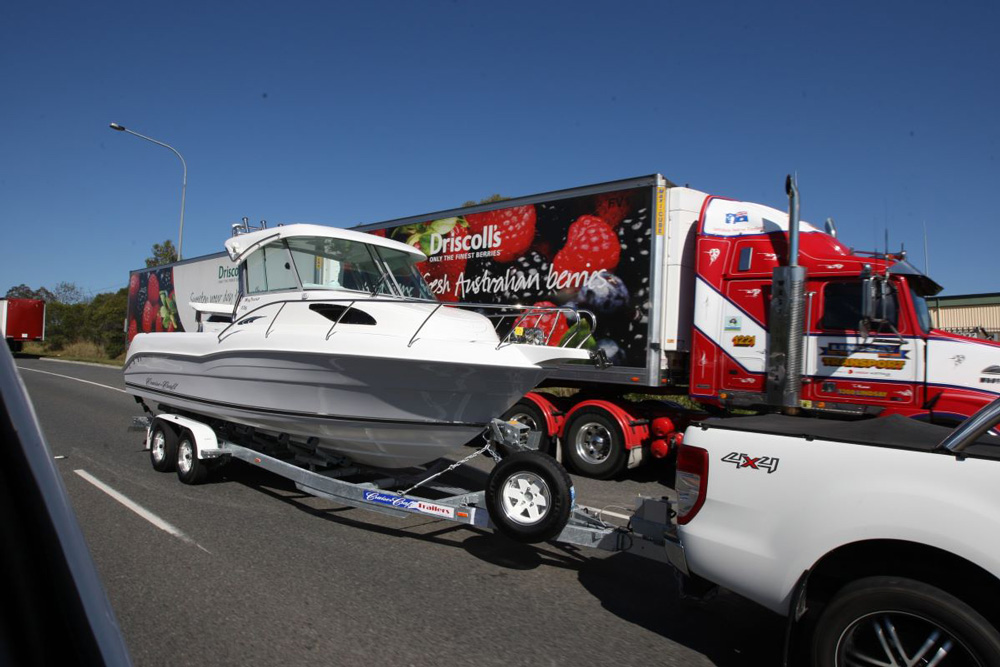
Most people don’t understand that the average truck driver will drive more kilometres in a year than the average car driver in a lifetime! Generally, a truck driver has the experience to adjust to suit the conditions. Still, all too often, you see a once—or twice-a-year holidaymaker, sometimes a fisho, or more often a grey nomad who doesn’t want to be stuck behind a truck. Give trucks plenty of room to maneuver, especially considering the weight for braking distances.
On the open road, most trucks are speed-limited to 100km. Hence, if you are content to travel at lower speeds, give trucks plenty of room when they overtake. Overtaking lanes are NOT an indicator that you should speed up—in fact, slow vehicles should maintain their average speed or even slow down a little when being overtaken.
Be aware that trucks have blind spots where the driver may not be able to see you and drive accordingly. Don’t take vision for granted; it’s all part of your road safety awareness.
Trucks have come a long way and are generally not slow vehicles except on some very steep hills. In fact, professional drivers will often know the road ahead, its safe speed and regular hazards, as well as localised road safety rules - so don’t be in too much of a hurry to overtake, especially when loaded and towing a trailer. Remember also that trucks push a lot of windage which may catch you off guard. Plenty of caravans have jackknifed due to such a vortex.
But trucks are not the only ones that demand added road safety awareness. Many holidaymakers seem to leave their brains at home, or engage holiday mode! Expect the unexpected, whether it is from other drivers' behavior or other dangers such as kangaroos, wombats, and even nowadays deer jumping out in front of you at the most unexpected times. Dawn and dusk are generally the most dangerous times as many animals are nocturnal.
It's also wise to keep a good set of sunglasses and the vehicle's sun visor ready as a blinding sun can strike often, particularly as you round a corner or climb a crest.
Personal Condition
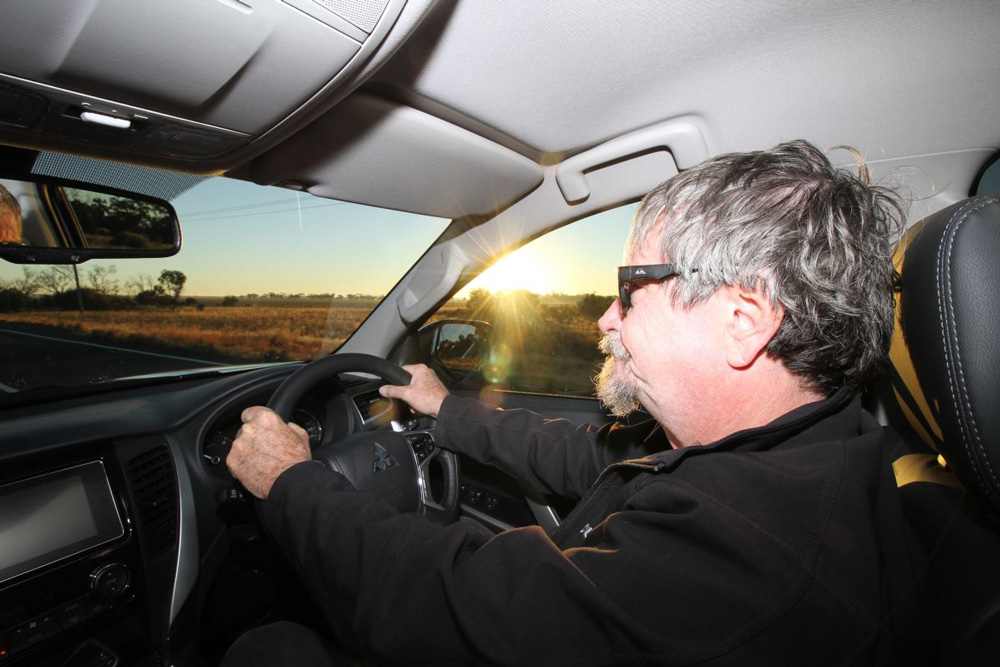
Driving a loaded vehicle with the added responsibility of towing a trailer, and sometimes carrying your family or mates, is a far different mouse trap than driving to the local shops for milk and bread. Your responsibilities don’t just finish with your vehicle and trailer; you must be sure you are physically up to the task. That means a good night's sleep with minimal intoxicants the night before, clean driving and sunglasses, plenty of light road trip food, travel snacks and refreshments, regular rest breaks, and perhaps above all, a patient attitude.
First Aid and Tools
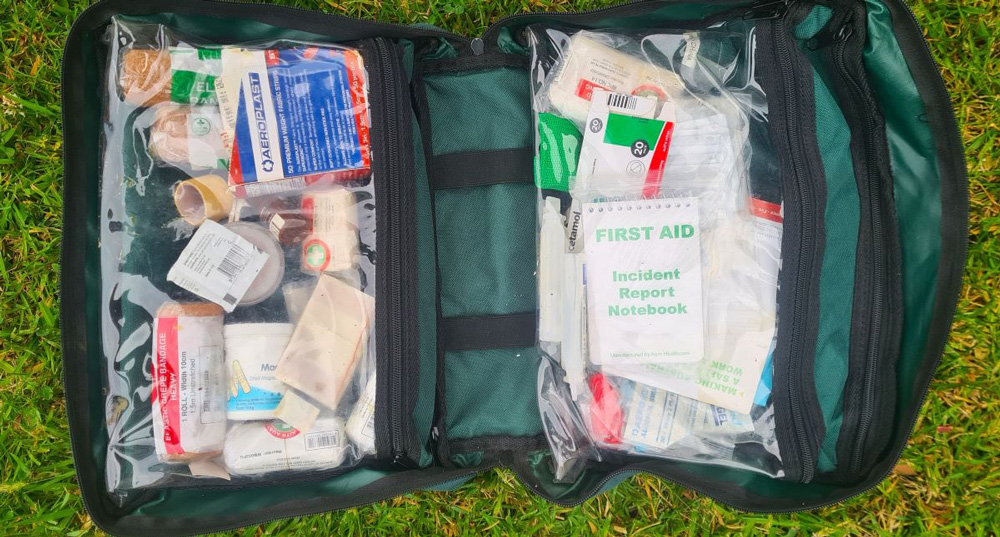
Australia is a huge country with many miles of open and often uninhabited roads. Should there be a problem, it is best to be prepared. Carry a comprehensive tool kit for roadside repairs, considering that the wheel nuts on your trailer may not be the same as those on the towing vehicle. A four-way wheel brace and independent jack are both recommended. Make sure that your spare wheels are suitably roadworthy and inflated. Fresh water can be your salvation if stuck on a hot and dusty road for any length of time, plus a well-equipped First Aid Kit and some training may save a life someday – or someday it may even save your own!
Attitude
The right attitude combined with a well-loaded, secure, and safe rig will greatly enhance your enjoyment on the road and make safer roads for everyone. Establish a good, safe pace being mindful of other vehicles around you, and plan your trip to encompass all of Australia's pleasures and adventures.
The last thing you need is to be the first vehicle on the scene of an accident! Enjoy your road trip and the ultimate destination. :)
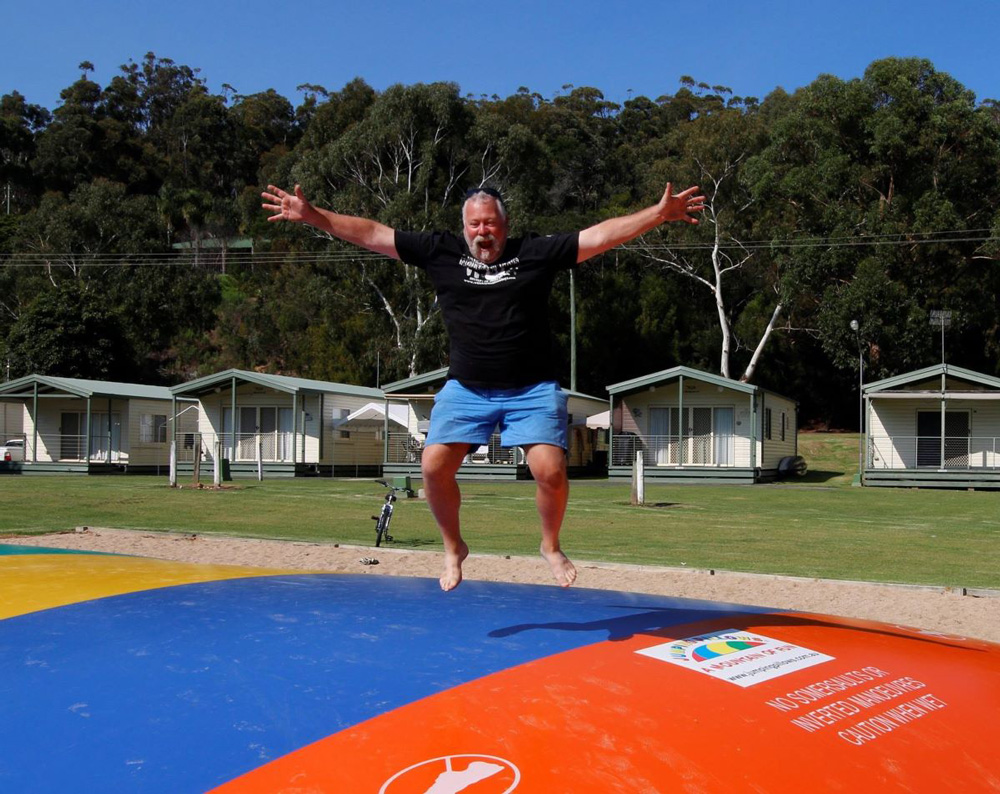
Found your perfect purchase? Let’s make financing just as easy!
Work with Australia’s best-reviewed finance broker for a great deal and a stress-free experience. With 2,500+ glowing Google reviews, you can trust you're in good hands! See what our happy customers say in Credit One reviews, or jump right in and crunch the numbers with our handy loan repayment calculator. Your ideal financing solution is just a few clicks away!